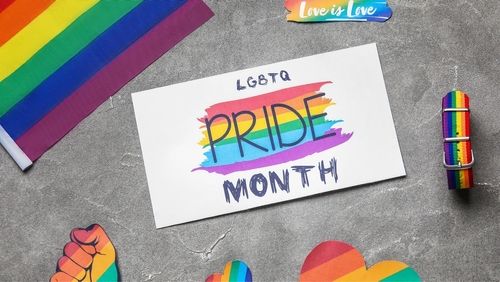 Pride Month, observed annually in June, is a time to celebrate and recognize the LGBTQ+ community's rights, history, and culture. While Pride is often associated with secular festivities, various religious groups and faith communities participate actively, supporting LGBTQ+ individuals and promoting inclusiveness. This blog explores how different religions celebrate Pride Month, highlighting the diversity of religious responses and the ways in which faith communities contribute to the broader dialogue on equality and acceptance.
Pride Month, observed annually in June, is a time to celebrate and recognize the LGBTQ+ community's rights, history, and culture. While Pride is often associated with secular festivities, various religious groups and faith communities participate actively, supporting LGBTQ+ individuals and promoting inclusiveness. This blog explores how different religions celebrate Pride Month, highlighting the diversity of religious responses and the ways in which faith communities contribute to the broader dialogue on equality and acceptance.
Christian Communities Embracing Pride
Among Christian denominations, there is a wide range of responses to Pride Month. Progressive branches such as the United Church of Christ, the Episcopal Church, and certain Methodist congregations often participate in Pride events by hosting special services, marching in Pride parades, and holding forums to discuss LGBTQ+ issues within a Christian context. These churches sometimes hang rainbow flags and banners as symbols of their support for the LGBTQ+ community. Additionally, many of these congregations actively work on theological interpretations that affirm queer identities, seeking to reconcile historical religious teachings with contemporary understandings of gender and sexuality.
Jewish Celebrations of LGBTQ+ Identities
The Jewish community, particularly within Reform, Reconstructionist, and Conservative movements, has shown significant support for Pride Month. Synagogues in these denominations might host Shabbat services dedicated to Pride, feature guest speakers from the LGBTQ+ community, and sponsor booths at local Pride festivals. Additionally, there is an increasing effort to include prayers and liturgies that specifically acknowledge and bless LGBTQ+ individuals, thereby integrating affirmations of queer identities into the fabric of Jewish worship and community life.
Muslim Outreach and Inclusion During Pride
While LGBTQ+ issues can be controversial in many Muslim communities due to traditional teachings, there are progressive Muslim groups and leaders who advocate for a more inclusive interpretation of Islam. Organizations such as Muslims for Progressive Values host interfaith Pride events, offer educational resources about LGBTQ+ inclusion, and provide a platform for queer Muslims to share their stories. These groups often emphasize the importance of compassion and dignity for all individuals, drawing on Islamic teachings about justice and equality to support their engagement with Pride activities.
Buddhist Contributions to Pride Celebrations
In Buddhism, the approach to LGBTQ+ issues varies significantly across different cultures and schools of thought. However, many Western Buddhist communities, influenced by a generally inclusive philosophy, celebrate Pride by focusing on teachings about compassion and non-discrimination. Buddhist groups might participate in Pride parades, offer meditation and mindfulness sessions tailored to LGBTQ+ individuals, and hold discussions on how Buddhist teachings can help address issues of identity, acceptance, and self-love.
Hinduism and Queer Celebrations
Hinduism’s vast array of deities and stories include narratives that are interpretatively queer, which some progressive Hindu groups highlight during Pride Month. These groups may organize events that discuss and celebrate the fluidity of gender found in Hindu mythology, such as stories of gods changing genders or manifesting as different sexual identities. Such interpretations are used to foster a more inclusive atmosphere within Hindu communities and to align spiritual teachings with the values of diversity celebrated during Pride.
Interfaith Initiatives During Pride Month
Interfaith initiatives play a crucial role during Pride Month, as they bring together diverse religious groups to support the LGBTQ+ community collectively. These initiatives often include panel discussions, joint worship services, and public statements that advocate for LGBTQ+ rights and inclusiveness. By collaborating, religious groups not only amplify their support but also demonstrate the power of unity in striving for social justice and equality.
The Role of Religion in Celebrating Pride
As Pride Month continues to evolve, the participation of various religious groups highlights an important aspect of the celebrations: the intersection of faith and identity. While not all religious communities are supportive, those that do participate in Pride activities contribute significantly to the message of love, acceptance, and dignity for all. Their involvement not only supports LGBTQ+ individuals within their own faith groups but also sends a powerful message to society about the potential for religion to be a force for positive change and inclusivity. As each faith brings its unique perspective to the celebrations, they collectively enrich the tapestry of Pride Month, making it a more inclusive and spiritually diverse event.



